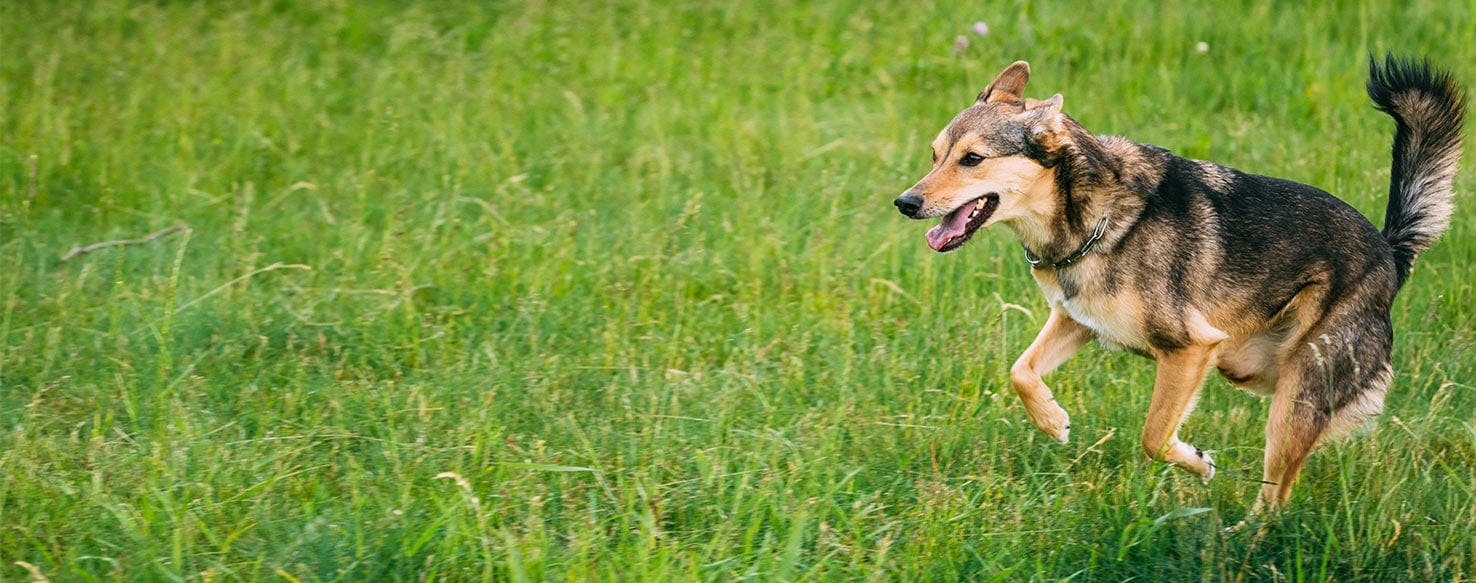- Home
- The Daily Wag!
- Behavior
- Why Does My Dog Growl When Playing
Why Does My Dog Growl When Playing

Common
Normal
Introduction
The sounds that canines make are super common, and tend to be something just about every dog owner has heard at some point. And if you are someone familiar with dogs, then you have probably noticed that these noises are especially prevalent when dogs are at play. This might be confusing to some, as many people perceive a growl as solely territorial in nature. But it turns out that there are a ton of different reasons a dog might growl from time to time. So should you let your dog growl at you? Is it alright for this behavior to present itself during times of play?
The Root of the Behavior
So if your dog is growling while he plays, what does that mean? Well, if they're playing with other dogs it could most likely mean that they're engaging in play fighting. This is a really common trait, especially in young dogs. They'll bound back and forth and emit a mid-ranged growl. It's noticeably softer than aggressive growling, which makes it fairly easy to notice. There are physical signs to note during this type of play as well. You might see one dog mount the other. It's possible that they may drag each-other to the ground. Something to note here is that there is a clear difference between play biting and real biting, and as an owner you should always pay attention for these clear differences. So why else would your dog be growling? Well, something to take note of is that some breeds will just naturally growl more than others. In fact, sometimes certain breeds were bred specifically for this purpose and no amount of training will breed it out of them. If you're someone just getting into the dog scene and haven't bought or adopted yet, keep this in mind when choosing the next member of your household. It could save you a lot of grief.
It's also entirely possible that they're doing this out of boredom. Dogs can get used to hearing ambient sounds just like people do, and if they're left to their own devices for long enough they may just be growling to hear any sort of sound they can. This sort of behavior is readily relieved with exercise and regular attention. It's only in severe bouts of isolation that this behavior tends to pop up. Another obvious reason that your canine may be growling is that there are other animals close enough for him to hear. It's entirely possible that your dog is growling because he's trying to respond or otherwise communicate with these adjacent animals. A lot of people have experienced this phenomenon.
Need advice about your pet's health?
Get answers fast from a veterinary professional 24/7 in the Wag! App.
Get Vet ChatEncouraging the Behavior
If your dog is growling incessantly without any obvious signs of provocation, it may be time to seriously consider your dog's emotional health. There are myriad mental health issues that can pop up in dogs. And just like humans, they are complex and sometimes are difficult to perceive. Strangely, a lot of professionals have agreed upon the notion that anxiety growling is actually helpful to the dog. It helps them reduce their stress and energy levels. Growling gives them a way to externalize an energy he would otherwise have to keep inside. Dogs are also going to growl in warning. Most dogs contain a pretty powerful protective instinct. If they feel as if you're one of their pack, they'll growl in warning at anything they perceive to be a potential threat. This is incredibly common, and not something that is inherently an issue. If this instinct tends to be a little out of control, there are plenty of training products available to help tame this behavior. If they fall into growling as their only form of communication, this is something you certainly want to avoid. Training is the obvious solution here, and learning to growl for everything is a learned habit to begin with.
Other Solutions and Considerations
If growling has become a major problem in your home, it might be time to bring in a behavioral specialist for some help. These individuals are able to detect a much greater level of nuance in your dog's behavior and can oftentimes solve the trickier doggie dilemmas. One thing you should never do is ignore a dog who growls a lot. It is always a sign of some sort of issue, be it serious or not. Make sure your dog is getting proper care and that his basic needs are being met. This will help you differentiate between trouble growling and other types of growling.
Conclusion
Dogs tend to growl while they play for a variety of reasons, most of them positive. And while play between dogs may not always stay positive, it can be kept that way if you give it the proper attention. If they just like to hear the sound of their own voice, maybe it is best just to let them have a growling good time.
Written by a Pug lover Shane Langenfeld
Veterinary reviewed by:
Published: 03/09/2018, edited: 01/30/2020
More articles by Shane Langenfeld
